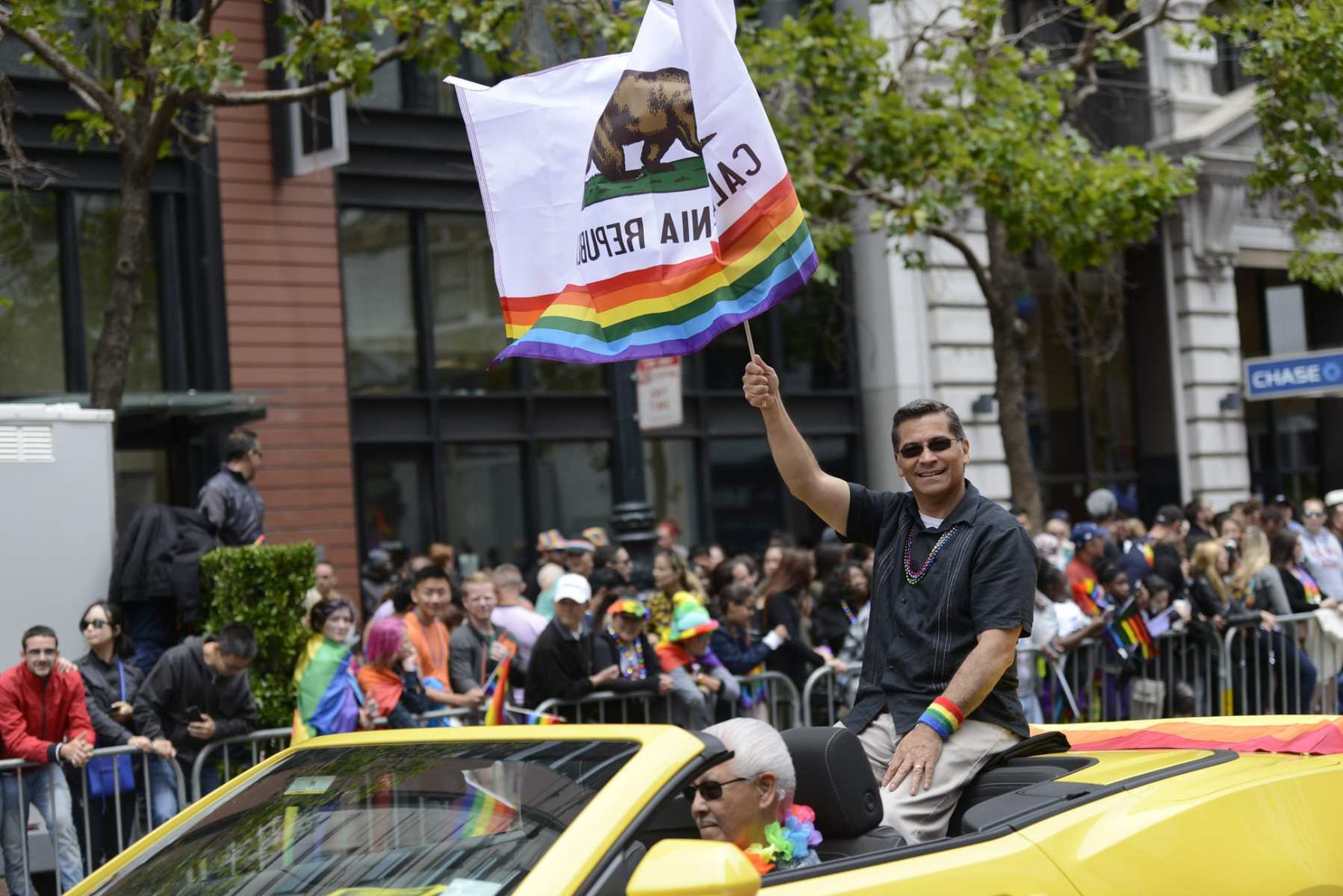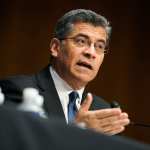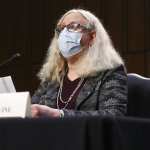Four years ago, a rule issued by President Barack Obama changed the lives of many transgender Americans: Doctors, hospitals and insurance companies were barred from discriminating against transgender people under a provision in the Affordable Care Act.
But in June, the Department of Health and Human Services finalized another rule, one that axed those landmark protections. The mandate came after a flurry of moves aimed at shielding health care providers with objections to treating transgender patients, people with HIV/AIDS and people seeking abortions.
The Trump administration upended the lives of LGBTQ+ people through such policy rollbacks. But on Monday, President-elect Joe Biden announced that California Attorney General Xavier Becerra was his pick to head up the Department of Health and Human Services. The selection is among the most critical for the administration in fighting the pandemic, but few roles are more crucial to gaining back LGBTQ+ protections. Becerra, many feel, is up to the task.
Gillian Branstetter, media relations manager at the National Women’s Law Center, said that a successful HHS secretary will not only just reverse Trump-era mandates to see trans health care advance, but pursue new policy, which she believes Becerra will do.
“This is not somebody who has been a passive supporter of trans rights, but is a really eager and enthusiastic warrior on behalf of trans people,” she said. “I think it’s an extremely promising sign.”
Rick Chavez Zbur, executive director of Equality California, praised Becerra as among the most ardent LGBTQ+ allies he has ever worked with.
“He’s just been rock solid with us since the very beginning, has an unblemished record, and in a way that really sets him apart from folks that are obviously very good today,” Zbur said. “He stepped out early at a time when it was not necessarily as easy to do as it is today.”
This is not somebody who has been a passive supporter of trans rights.
Zbur met Becerra in 1994, during Becerra’s first term in the U.S. House as a representative from California. He recalls that even then Becerra backed marriage equality, something few other members of Congress did. Among 435 senators and representatives, Becerra was among just 67 who voted against the Defense of Marriage Act in 1996, according to Equality California. In 2005, he co-sponsored the Matthew Shepard and James Byrd Jr. Hate Crimes Prevention Act, federal legislation that added sexual orientation, gender identity and disability to hate crime law.
After Becerra became the California attorney general in 2017, he often led the progressive state’s charge against Trump policies, particularly when it comes to LGBTQ+ rights. In 2017, Becerra filed a motion to intervene in a federal case challenging Trump’s ban on transgender military service.
But it’s his role as champion of the Affordable Care Act that has electrified LGBTQ+ advocates. Becerra has become the figurehead of the movement to protect the ACA against Republican-efforts to repeal it, stepping in alongside other attorneys general to defend the law when the federal government declined to do so.
Human Rights Campaign President Alphonso David tweeted that Becerra has been an ally to the LGBTQ+ community throughout his public life.
“He is a great pick for HHS secretary, and we look forward to watching him protect the health care of all people in this country,” David said.
Still, advocates remain deeply worried about LGBTQ+ health. Policy rollbacks have shrunk access to care, experts say. According to Out2Enroll, a consortium of advocacy organizations, the percentage of health insurers with exclusions for trans health coverage more than doubled over the last year from 3 to 7 percent.
Further, LGBTQ+ people are battling COVID-19 on top of other disparities.
“I’m really nervous about the state of LGBTQ health nationally, because this pandemic is creating major life challenges for LGBTQ+ people,” said Zbur. “We believe that is much worse than it is for the average American … We know that LGBTQ+ people are employed in those sectors of the economy that are much more likely to be facing unemployment. They’re on the front lines and much more likely to be facing exposure to COVID.”





